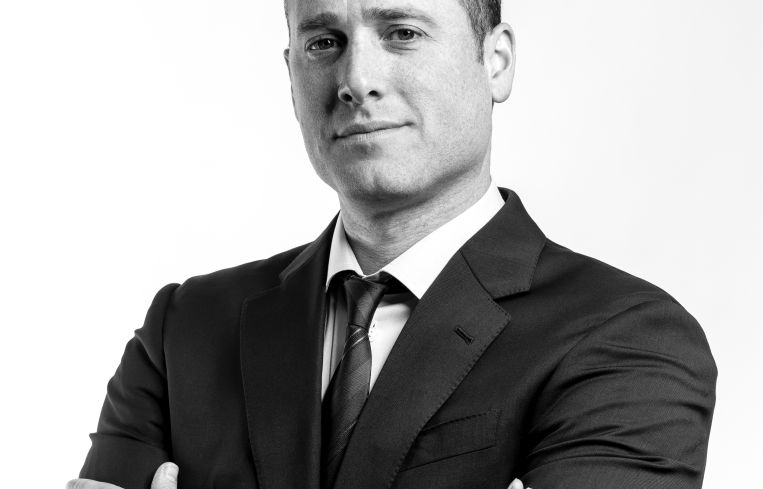Presented By: Partner Insights
Industry Spotlight: Q&A With Hodges Ward Elliott’s Brett Katz
By Partner Insights June 16, 2020 9:26 am
reprints
Hodges Ward Elliott (“HWE”) is the premier boutique real estate capital markets advisor, delivering results for over 45 years. HWE’s multi-disciplined platform includes commercial, hotel and debt capital markets teams, with offices across the U.S. and London. HWE has closed $68+ billion of transactions, including 26+ billion over the past 5 years, and a current pipeline of $10+ billion. Commercial Observer’s Partner Insights team sat down with Brett Katz, Managing Director and Head of West Coast Capital Markets at Hodges Ward Elliott to discuss how HWE is handling the downturn as well as recent activity in the industry.
Commercial Observer Partner Insights: What deals are moving forward in the current market and are you seeing any new activity coming down the pipeline?
Bret Katz: After a 3-month general pause in the capital markets due to COVID, we have seen a substantial pickup in activity on both the debt and investment sales side. Recent activity includes COVID-impacted transactions (ranging from rescue capital infusions or preferred equity for recapitalizations to workouts and loan modifications with existing lenders), re-engagements on pre-COVID deals (sales and related financings being re-structured case-by-case) and entirely new transactions with more traditional needs setting the current market. At HWE, we are actively working on over $1 billion in capital markets transactions. Given the volume of recent BOV requests and financing advisory sought across all market constituents, we expect the market to pick up even further through the summer as impaired assets ultimately work their way through the system. This will present more REO and loan sale opportunities along with new financings. On the investment sales side, we just closed the first post-COVID hospitality transaction this week, a boutique lifestyle hotel in Nashville, and are currently marketing or engaged on another dozen sale opportunities throughout the country.
Are you seeing any unique opportunities arising?
Katz: Absolutely. We are already working on some exceptional debt and equity opportunities created by recent capital and operational market dislocation that would otherwise not have existed. These include loan/note sales (for yield or potential ownership), mezzanine foreclosures and recaps, preferred equity investments/rescue capital infusions, DPOs, bespoke debt positions to fill current holes in capital structures and direct asset sales. With respect to all of these opportunities, we see first mover advantage, certainty of execution and a willingness to not “price to perfection” as the keys to capitalize. On the immediate horizon, as the initial three-month forbearance period that was granted to most borrowers comes to an end, we see a surge of trades happening. Some will simply be the result of owners giving back keys on deals where they see no remaining value (to them). Others will be loan sales as lenders and borrowers will be forced to make tough decisions. While we expect more “distress” and deeply discounted note sales, that does not necessarily translate to the best opportunities available and we are actively assisting our clients with this critical evaluation.
What asset classes should investors be focusing on?
Katz: It is becoming apparent that the hospitality sector will offer the most opportunities overall. Banks, life insurance companies, certain debt funds and the CMBS market have all generally re-engaged on office, industrial, and (most significantly) multifamily at very compelling pricing. Retail remains a long term challenged asset class undergoing an acceleration of pre-existing problems. For an active lender, hospitality currently offers a strong value proposition. With more lender-favorable loan structure, not only have hotel asset values reset, but so have leverage cutoffs (i.e. 60% is the new 70%) on those values – all at wider spreads. For core assets in strong, early-to-recover markets (i.e. drive-to-leisure) where there is more transparency, the risk-adjusted returns look favorable. Further, with so many lenders on the sidelines for hospitality, active lenders can play in parts of the capital structure not usually available such as senior loans and mezzanine debt. On the sale side, we are seeing more broad-based interest for hotels than ever before, particularly from private capital. Buyers with a measured, long-term view of the capital markets and asset performance recovery are recognizing the unique situational discounts that the current climate is generating.
How has your firm positioned itself to sustain a downturn?
Katz: HWE has always been a resource to its clients for all of their capital markets needs through various market cycles and idiosyncratic events. The firm has been a leader in the advisory space for over 45 years and since launching the debt platform in 2016, we have executed over $10 billion in debt-related transactions across all asset classes. Our background as ex-lenders and capital markets specialists has uniquely equipped us to be effective in a downturn where “behind the curtain” lender knowledge and experience is of the utmost importance. We provide our clients with a firsthand perspective on lender motivations and a deep understanding and analysis of underlying loan, capital, and CMBS structures. Our extensive senior lender relationships we have cultivated as former lending partners over the past 20 years as well as our “one-firm” approach, working on transactions in tandem with our hotel and commercial sales teams, places us in the unique position to help our clients not only weather the storm, but create value and capitalize on what the market offers.



